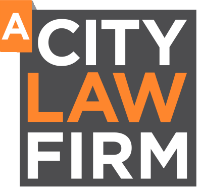
So what do you do and how far do you go to protect yourself?
- Check your website terms, your contracts with those providers and understand your liabilities.
- Check your insurance policies.
- You may also want to carry out some due diligence and checks on the providers and/or their materials provided.
What is happening and why?
Last year, the European Parliament voted through the draft wording of the European Copyright Directive. As of 13 February 2019, the final wording has finally been agreed upon. The most controversial component of this Directive is Article 13. It proposes to shift liability of copyright infringement from copyright holders to online content sharing services.
In practical terms, this simply means that websites which host user-generated content such as YouTube, Twitter, Instagram, Facebook and Soundcloud will now be responsible for ensuring that the content shared on their platform is not done illegally. If it is they have to take the necessary action.
The provisions of Article 13 refer to services offered by companies such as YouTube, in that they allow public access to “protected works or other protected subject-matter uploaded by its users”. There is a long list of exemptions where Article 13 will not apply. In addition, there are rules which may relieve companies of liability if they can demonstrate:
- they made “best efforts” to get permission from the copyright holder;
- they made “best efforts” to ensure that the material specified by rights holders was not made available; and
- they acted quickly to remove any material which infringed any rights as soon as it was made aware.
Services can rely on the above rules where they have been available in the EU for over three years or have an annual turnover of more than €10 million.
Article 13 also requires that the appropriate licensing agreements are put in place with copyright holders. This should cover the liability for material uploaded by users in line with the terms and conditions as set out in the licensing agreement. If copyright holders do not wish to agree licensing agreements, then Article 13 encourages the online platform and copyright holders to “cooperate in good faith in order to ensure that unauthorised protected works or other subject matter are not available on their services”.
It is anticipated that the platforms most likely to be affected are video-sharing websites, sports and movie trade organisations and, of course, the music sharing industry.
Does Brexit matter?
Brexit will undoubtedly have some impact on the incorporation of this Directive into UK law as it is intended to act on copyright within the digital single market. However, it is important to keep in mind that, regardless of what Brexit deal is eventually reached, the provisions of this Directive will not just be a European issue but a global issue, given that the realms of the internet are naturally, and technically, worldwide.
What should you do?
It is difficult to assess materials, on receipt, for uniqueness and ownership. Actions you can take are:
- Any agreements must make the terms clear to the provider – that they are contractually declaring they own and have the right to share this information.
- Carry out some due diligence on the provider and what they are providing where possible. If in doubt consider removing the content.
- Make your policies on copyright infringement very clear on your website to discourage third parties sharing content they don’t own. If this arises you need to take action so you can ensure your insurance is valid and people see you as reactive and in control of such activity.

Karen Holden is the Managing Director & Founder of A City Law Firm who practise both commercial law and litigation, having been admitted to the roll in 2005. If you require further advice or assistance, please do not hesitate to contact [email protected]
A City Law Firm Limited is a leading entrepreneurial law firm in the city of London, with a dynamic and diverse team of lawyers. It was awarded most innovative law firm, London 2016 and Business Law firm 2017. They specialise in start-up business law, the tech industry, IP and investment

























